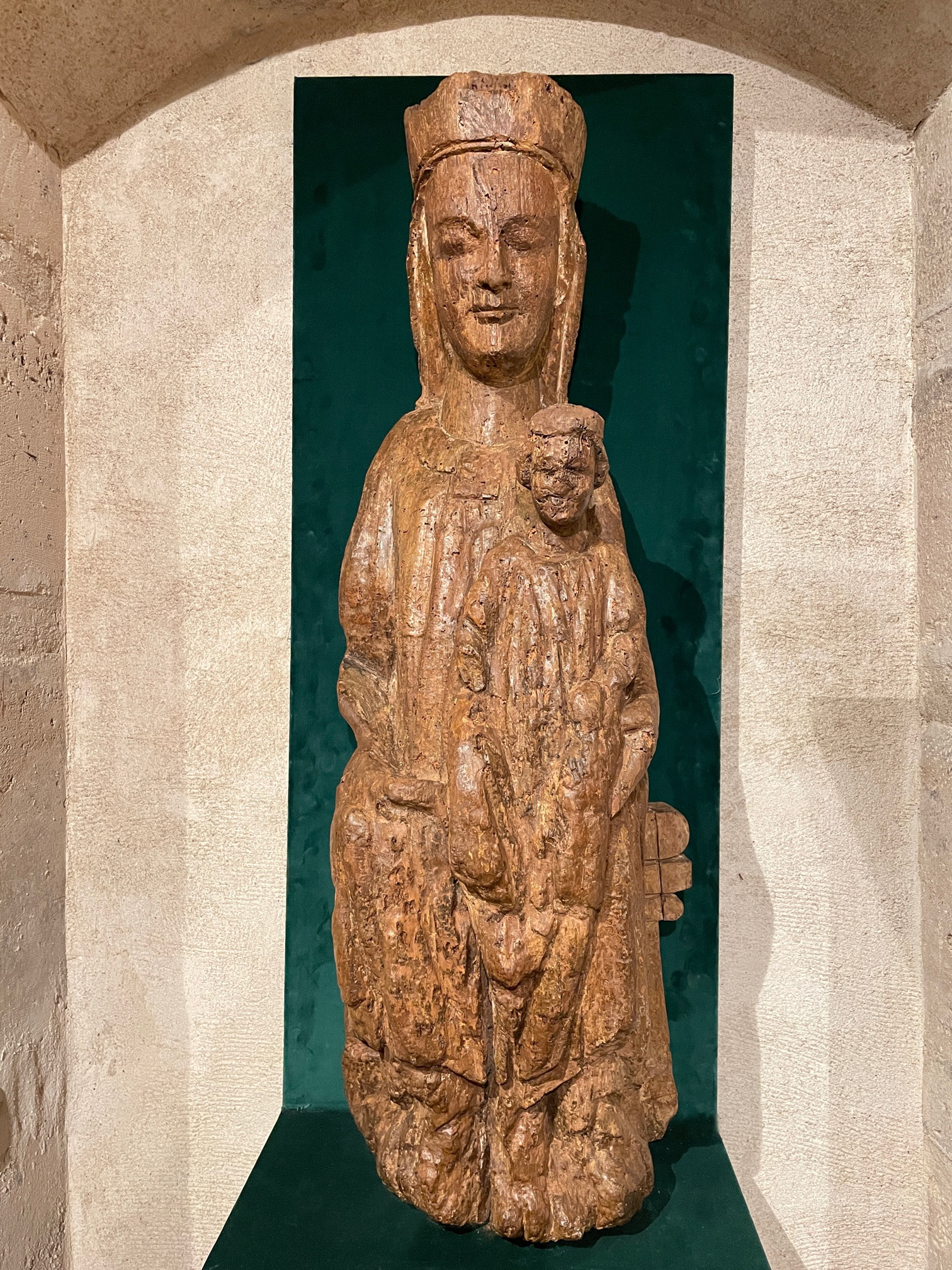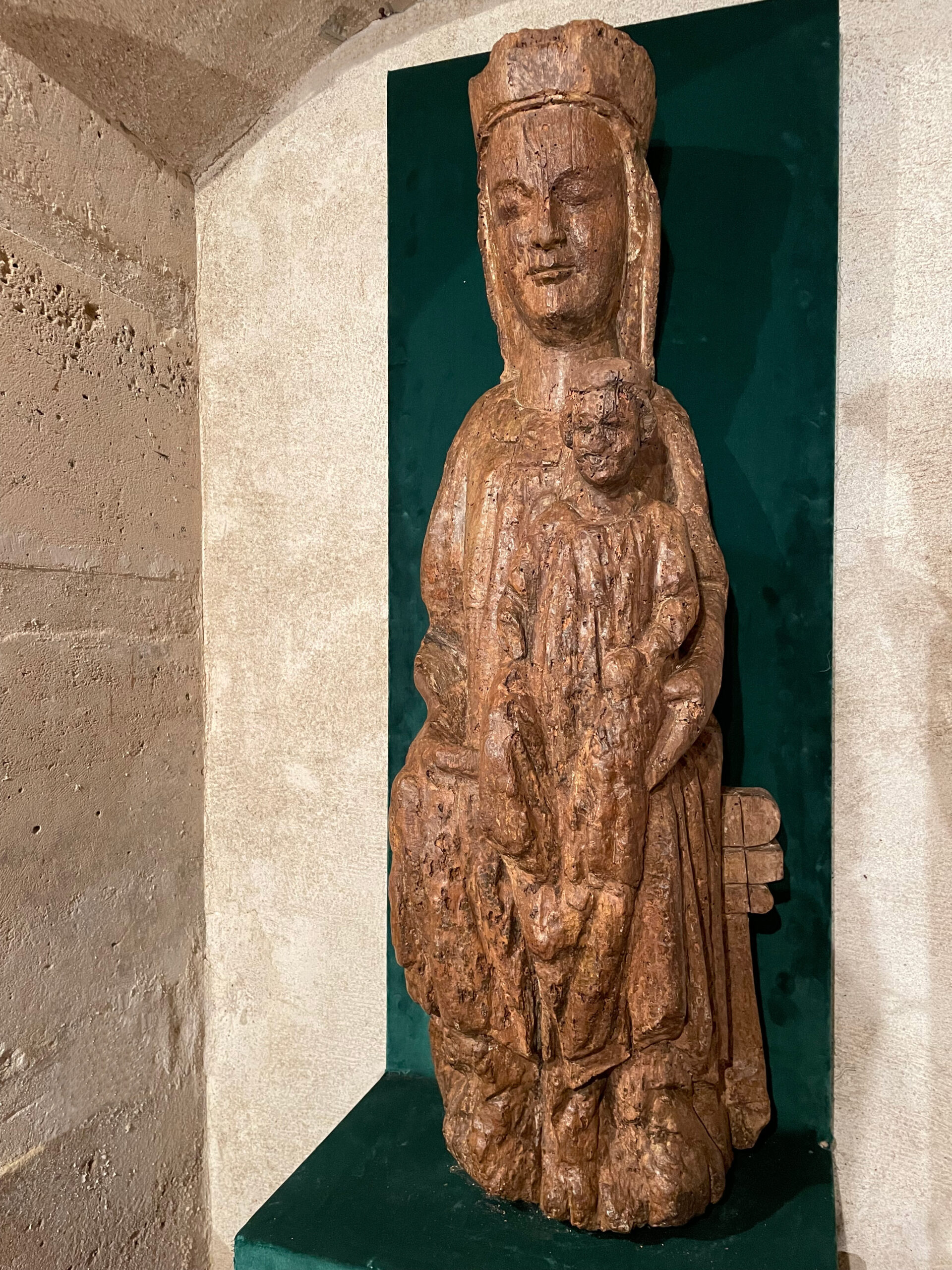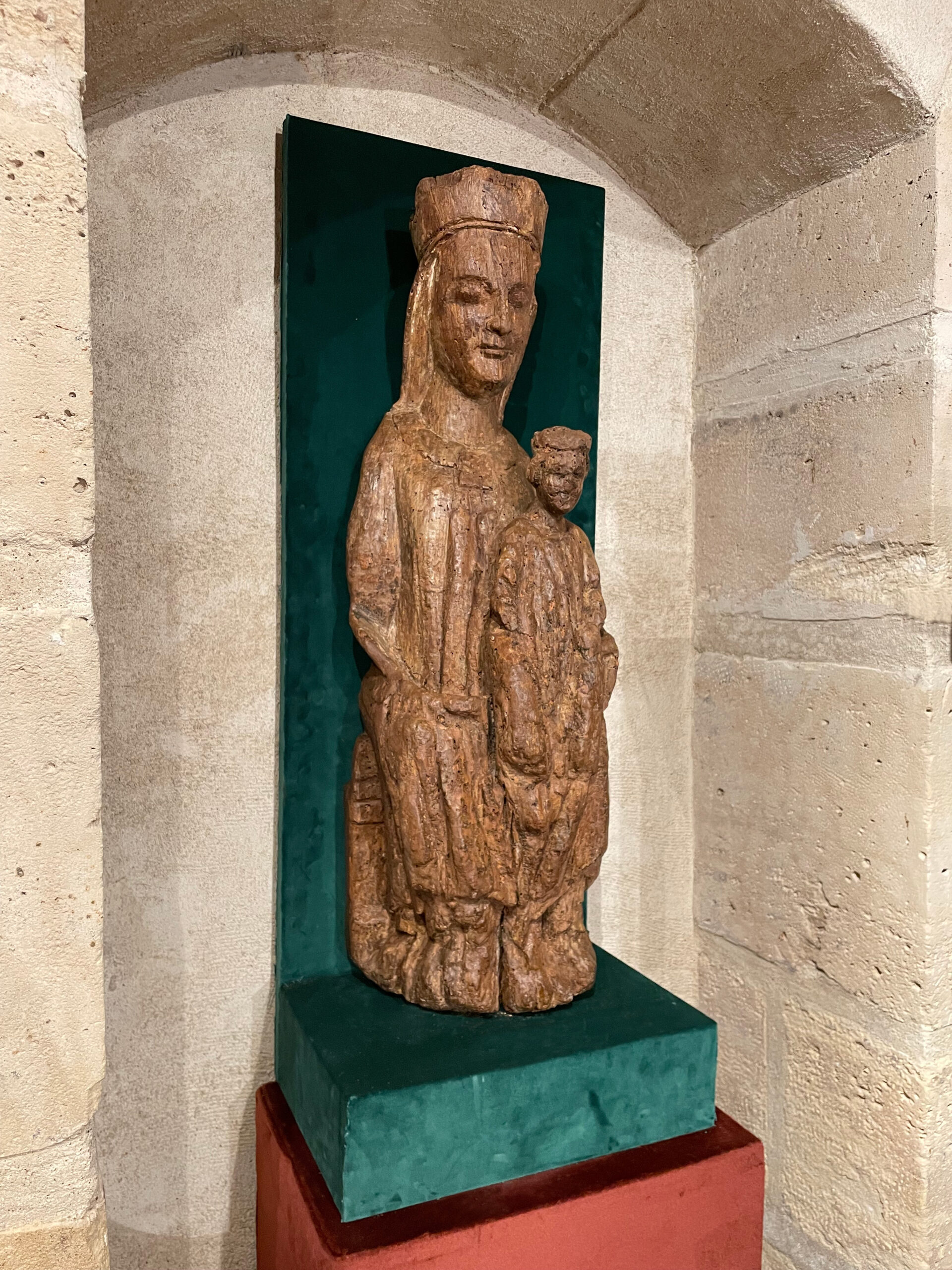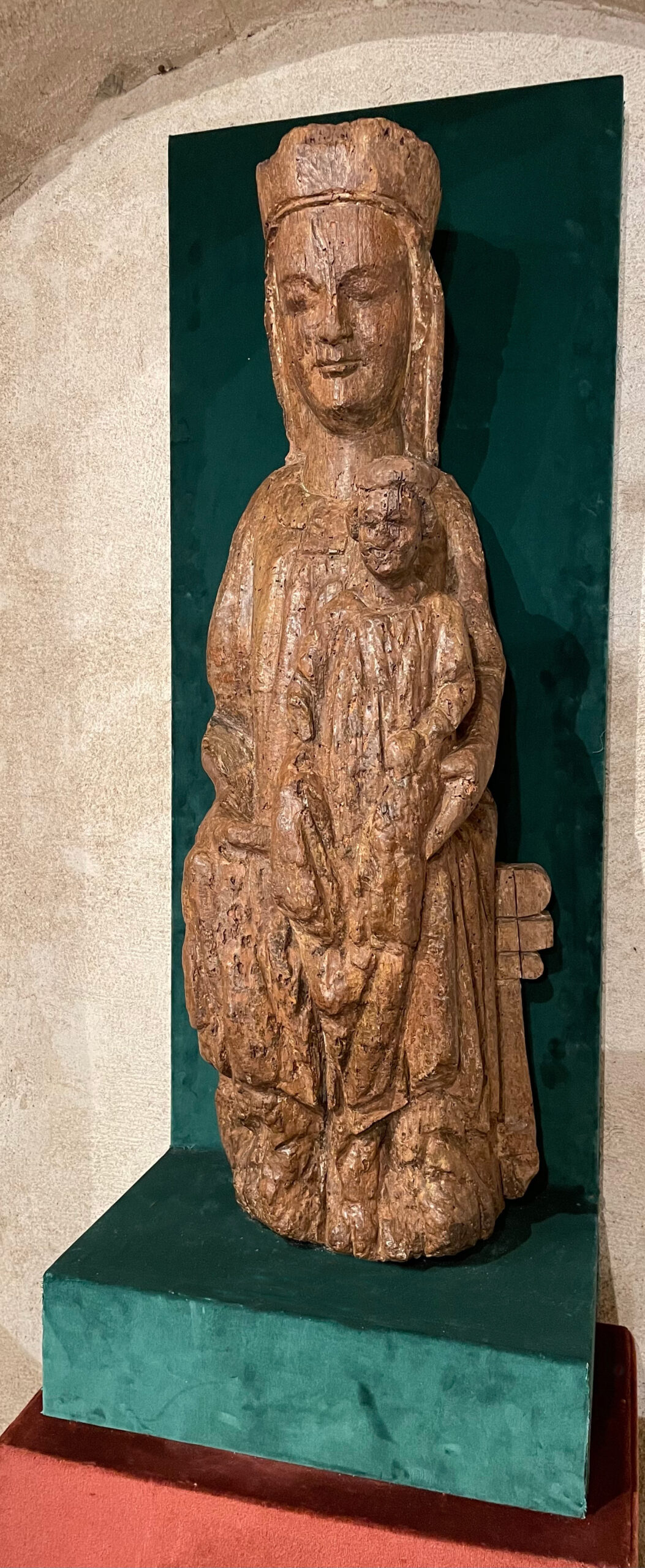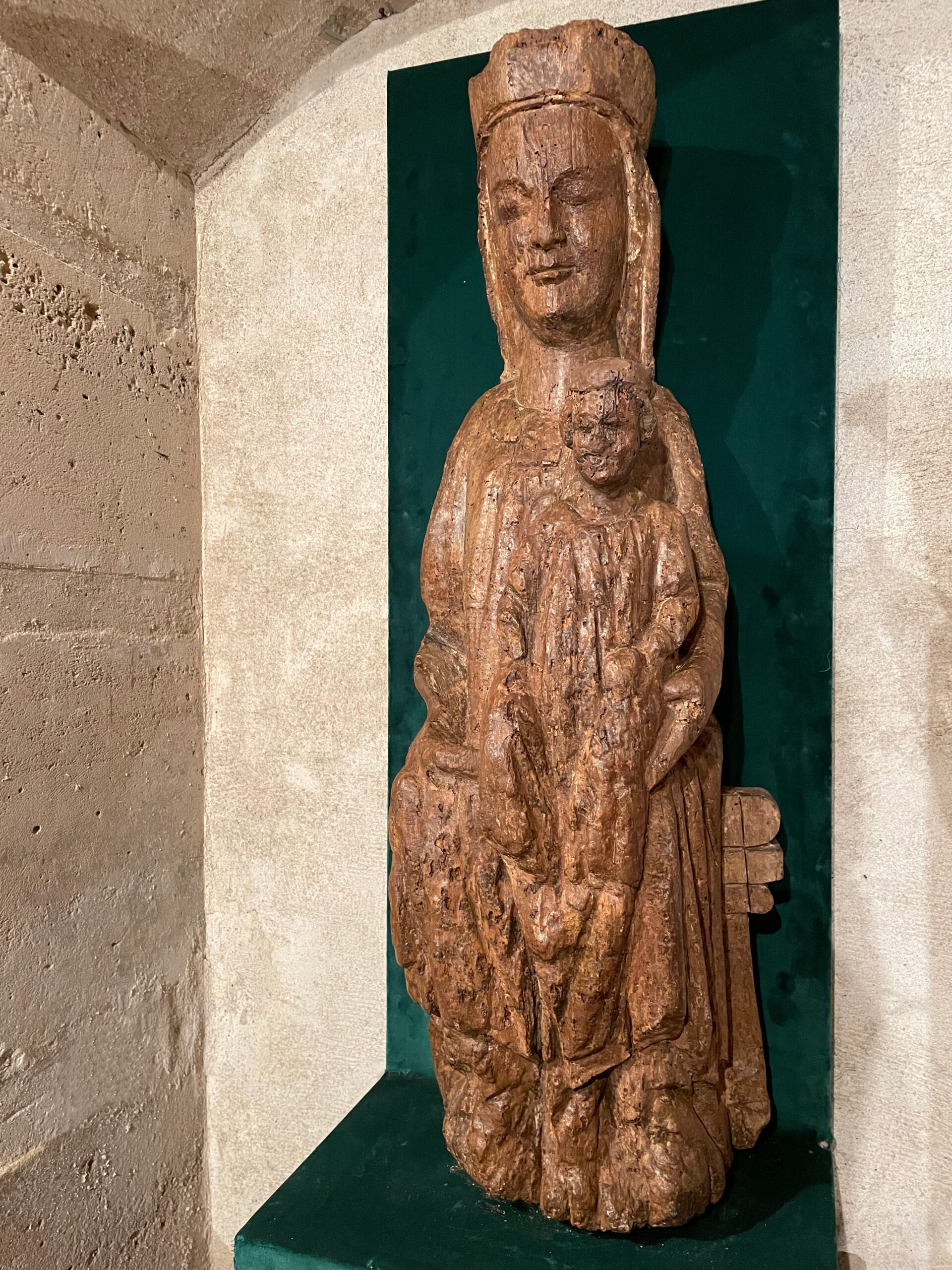Description
Virgin and Child enthroned were a very popular iconographical subject during the Medieval era. Pilgrimages promoted their development while spreading models. They appear in France as well as in Germany, Belgium, Scandinavia, England, Italy, Spain…
In the middle of the 12th century the Virgin takes place inside churches, seated and acting as a throne for her Child Jesus. She is then called Sedes Sapientiae meaning Throne of Wisdom.
Mary is not depicted for herself, she appears only because designated as Theotokos during the council of Ephesus in 431. This council declared that Christ was born with His divine nature, henceforth Mary is the Mother of God.
This Virgin and Child is seated on a throne, we can distinguish an element on the right, presenting Jesus with her left hand. The Child rests on the left knee in frontal position.
Mary wears a simble dress with a round neckline. Her face presents fine features, a straight nose, small mouth and is covered with a veil placed high and cast backwards.
The crowned Child wears a long tunic.
The Child’s position is not as hieratic or frontal as it was during the early 12th centuries but His face stays turned towards the devotees. From the 13th century onwards Jesus begins to seat sideways.
This similarity in Jesus’s face and His mother’s – as in the profiles and the gaze of their looks – indicates their lineage. The mature appearance given to Jesus’ face reminds us of His pre-existing nature.
This Virgin and Child appears to be a fine production of the early 13th century.
Literature :
Jacqueline Boccador, Edouard Bresset, Statuaire médiévale de collection, tome I, Les clefs du temps, 1972
Ilene H. Forsyth, The Throne of Wisdom : Wood sculptures of the Madonna in Romanesque France, Princeton University Press, 1972
Galienne Francastel, Le droit au trône, un problème de prééminence dans l’art chrétien d’Occident du IVe au XIIe s, Paris, Klincksieck, 1973


